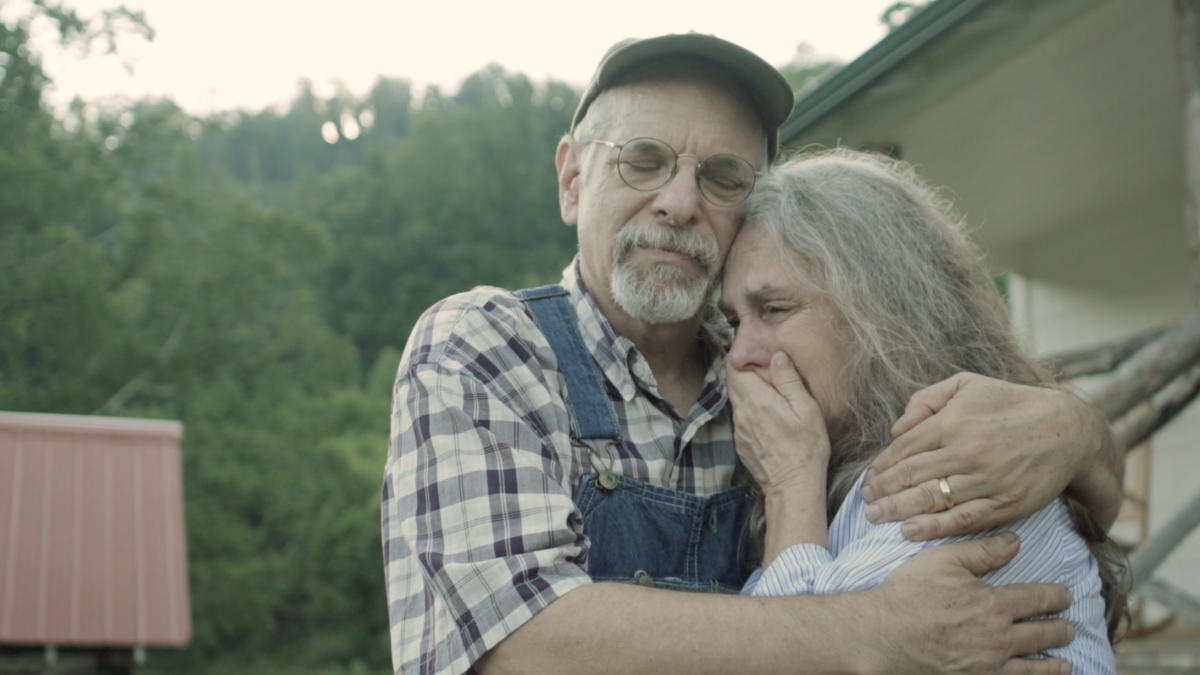
Dale Farmer lives in a small college town in Southwest, Ohio. Dale recently retired from his day job to focus on filmmaking full-time. Other than two-night classes on Video Production at a local College, Dale has no formal training in filmmaking. For the past 8 years, he has studied every book or magazine article he could get his hands on about Screenwriting, Acting, Directing, and Filmmaking in general. My film, The Mountain Minor, is my first narrative feature. It is a film about Appalachian music, starring several nationally known old-time musicians – Elizabeth LaPrelle, Dan Gellert, Mike Oberst, Ma Crow, and others. I contracted with a production company, Wonderland Woods Productions, out of Boone, North Carolina to do the production under a work-for-hire agreement. They did all the cinematography, sound recording, and primary editing.
What is your experience working on the story, the screenplay, the production, the premiere, and the marketing?
Dale Farmer (DF): The Mountain Minor screenplay was my way of documenting my family story of having to leave the mountains of Kentucky in the 1930s to find work in Southwest Ohio. It started as a short film that I wanted to produce for fun with my old-time string band and other local musicians. But once the ball got rolling, we saw the potential for something much bigger. I ended up bringing Susan Pepper on as a producer. She is a professional musician and Appalachian scholar and is very well-connected to the old-time music world. Susan and I funded the production of a concept trailer the year before we started principal photography and such. We then used the concept trailer to raise the needed funds for production.
The official trailer for The Mountain Minor written and directed by Dale Farmer
We shot the film in the mountains of Todd, North Carolina on three different Air B&B locations— two farms and an old log cabin. We also shot a few scenes in Northern Kentucky and in my hometown in Ohio. We had a very small budget, so we had a minimal crew of six people. None of our cast members had ever acted before, but they were all professional performers and adapted quite well. It was a challenge, however, and we filled a 10TB hard drive with footage to get all the shots we were happy with. It took a whole year for our editor to sort out all the footage and give us our festival edit. We then premiered at the Jukebox International Film Festival in Carson City, Nevada, and continued on the festival circuit for the next year.
We released the film publicly in October of 2019. We self-distributed the film and tapped into our large following of old-time and bluegrass bands on social media and email database to partner with us for theater and community screenings. We hired a media marketing intern from Miami University (of Ohio) to help us with booking screenings and general outreach. We were able to do 23 screenings before the coronavirus halted everything. We had to cancel the next 18 confirmed screenings and many more we had in the works. So, we released the film on Amazon Prime and Vimeo on Demand and made DVDs and Blu-Rays available through Amazon.
All our marketing was through social media and a few newspaper articles until we met a publicist, Fred Anderson. Fred has helped us immensely by getting on TV news shows for interviews and music performances, newspapers, magazines, and online publications. Fred also paved the way for our national TV broadcast premiere on The Heartland Network scheduled for June and Kentucky’s statewide PBS network, Kentucky Educational Television (KET) in July. The film has also been acquired by West Virginia Public Broadcasting and CET and ThinkTV, two PBS affiliates in Ohio. Additional television outlets are currently considering the film.
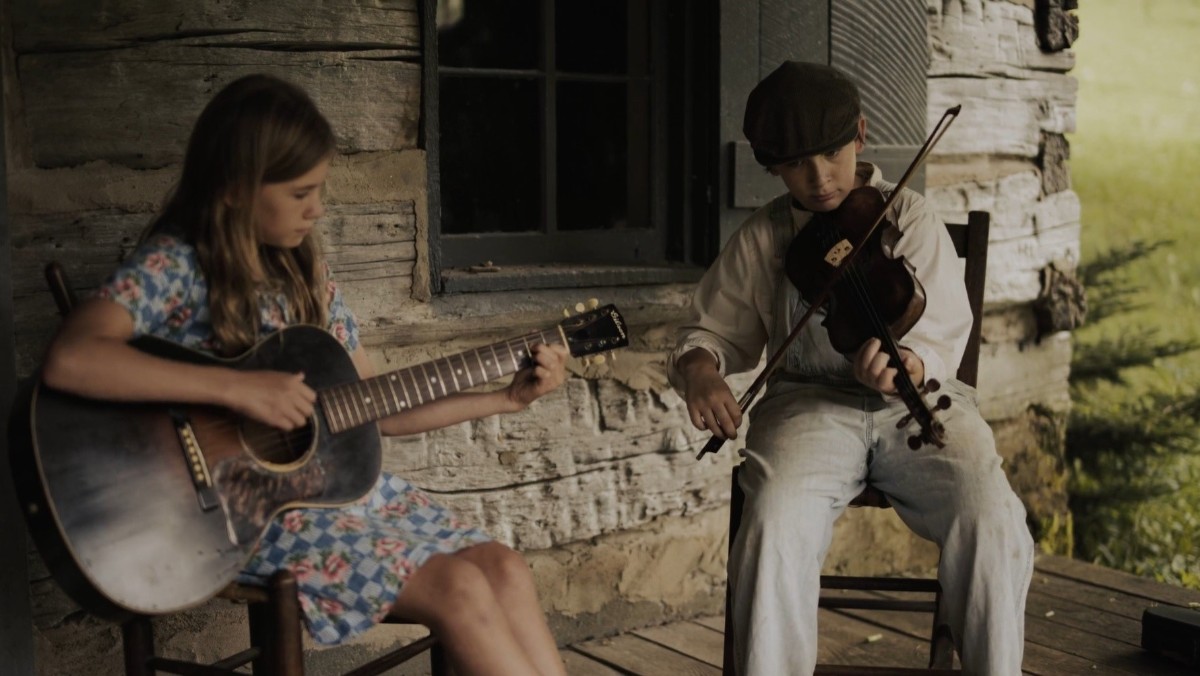
How did you put the crew and cast together? Did you start writing with a known cast?
Dale Farmer (DF): The stars really did line up for us. It took about a year to find our locations in the mountains of North Carolina. We then began our search for a crew and found Wonderland Woods Productions who happened to be located 20 minutes away from our shooting locations. Wonderland Woods was a small company that had been doing documentary work all over the world with a relief organization. They had also worked as backup crew on a couple of features and happened to be looking for a feature project to do the primary production work when I contacted them about The Mountain Minor. I did not have a known cast when I started out, but I did have a fantastic cast of some of the best musicians in the old-time world that I pictured playing the parts as I wrote the screenplay. It was really on a whim that Susan Pepper and I contacted all of them and sent them the screenplay. I was actually shocked when every last one of them said they loved the script and wanted to be part of the project. Through an organization that Susan had overseen years before called Junior Appalachian Musicians, we found the two most amazing and talented kids, Asa Nelson and Hazel Pasley, to play the main parts. Everything just fell into place after that.
What and how long did it take to complete the script?
Dale Farmer (DF): I originally wrote the script as a short a few years before I ever thought of actually making the film. I wrote it myself but had a few very good writers read it and offer some great suggestions for edits. When we got together to shoot the concept trailer, we knew the story had much more potential than we had planned. So, over the next year, while we were raising production funds, I expanded the story to feature-length. And, of course, during shooting, we made daily changes to adapt to different challenges that would come up or new insights gained during shooting as the characters came to life.
When did you form your production company – and what was the original motivation for its formation?
Dale Farmer (DF): We partnered with the nonprofit fiscal sponsor From the Heart Productions in 2017. I had to have an LLC to receive the donations, so I formed alt452 Productions. My goal as a company is to honor the heritage and music of the Appalachian region through film. The film industry and media, in general, have negatively stereotyped the Appalachian people and culture. But, there are so many stories of resilience and positive contributions to society that need to be told and I hope that my company will be a part of that changing narrative.
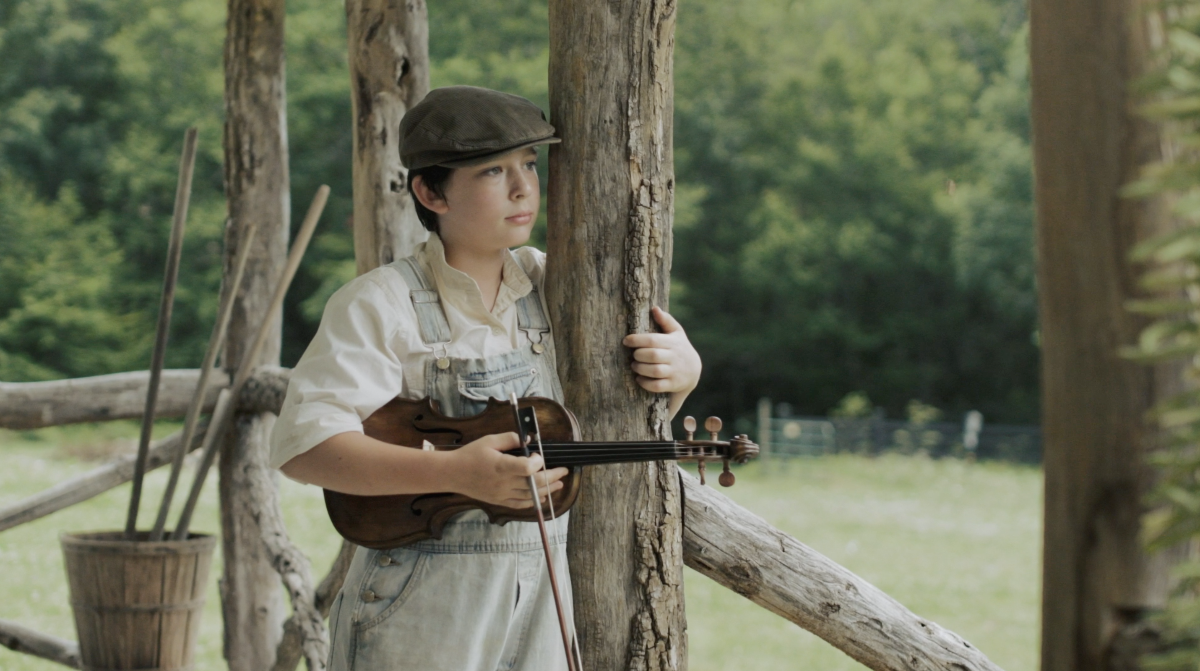
What was the first project out of the gate?
Dale Farmer (DF): The Mountain Minor was our first project. Had I known that my life would be completely consumed by the project over the next five years, I don’t think I would have had the confidence to take it on. I think people hate watching film credits with me because as they roll I say, “I did that, I did that, I did that, I did that,” and so on through the whole credit roll. As they say, I didn’t know what I didn’t know. That’s probably a good thing, although it resulted in my doing everything in a “cart before the horse” fashion. I was honored at one film festival with a Best Director award. There were multimillion-dollar films at that festival with great directors and I really did not feel that I deserved the award, so I had a talk with the festival director about it. He was a filmmaker and a professional New York actor. I told him I did not feel good about the award and wanted an explanation.
He agreed that there were much better, more experienced directors than me represented at the festival. But, he said that when he read my submission he saw that I was a first-time director, only had a budget of $130,000, was shooting a period film with four-time periods, had first-time actors, had child actors, and making a music film. He said that he dreaded watching my film because he knew it would be horrible. He said that even with his experience he would have never taken on a project of that magnitude. But, he went on to say that he and the judges were taken with the film and loved it; it made them laugh, and cry and feel good in the end.
He thought the first-time actors were very believable and the music was amazing. They thought I had set myself up for an epic failure and that they did not know how I did it. That is why I got the award. I really do not say this to boast, but to say that I surrounded myself with talented hard-working people from the start who wanted to help me throughout the process. I didn’t do it on my own but yes, it has consumed my whole life and still will for a while.
During the film production, what scene (that made the cut) was the hardest to shoot? And why?
Dale Farmer (DF): Ask anyone involved with our production and they will tell you about the “scene from Hell.” We had to shoot with 10 actors, the cinematographer, the boom operator, and a crying baby in a somewhat small living room. We should have scheduled a full day for the scene, but it was shot late in the afternoon and the light changed as the sun moved toward the horizon. It was a scene of the whole family together. Six of the actors had speaking parts.
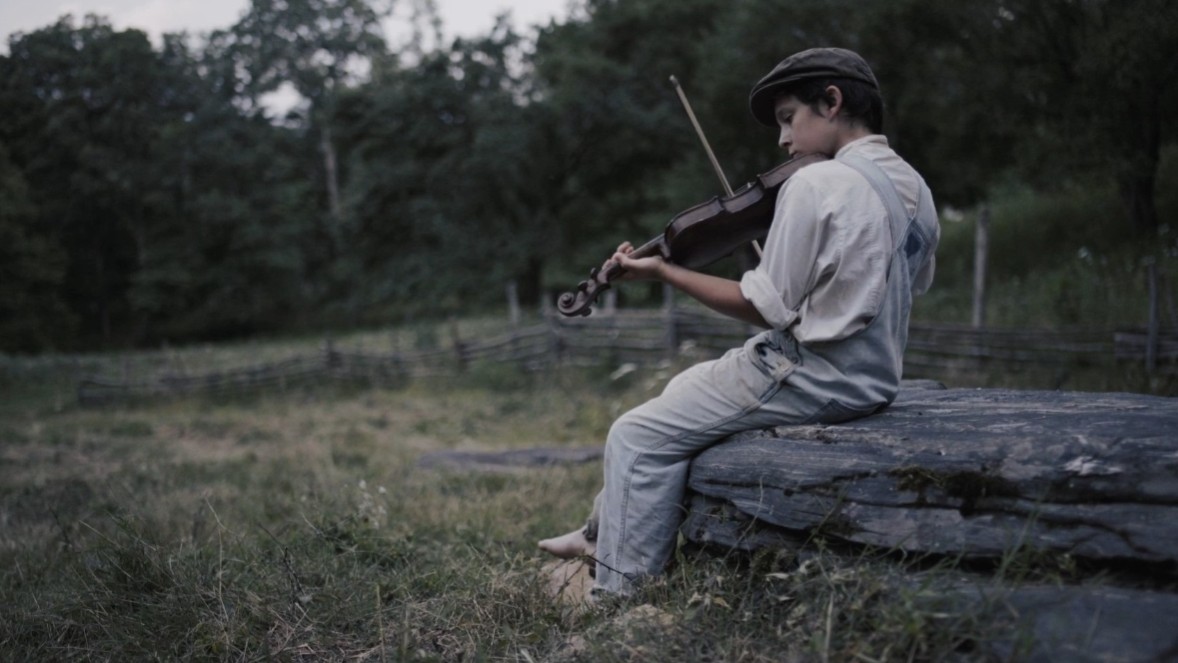
My DP said there was no time to shoot the whole scene and this was our only chance as the following days were completely scheduled full. The DP said that we needed to drop all actors who didn’t have a speaking part and I said that they had to be there. My DP and I are the two most laid-back people I know, but we wasted the next 15-20 minutes of available daylight in a heated argument in front of everyone with their mouths hanging open. In the end, I got my way and the scene turned out just as I had hoped.
However, we had one more exterior scene to get in before it got dark, which became the second-hardest scene to shoot. We had access to an old log cabin Airbnb that evening only. We were only able to get half the scene shot in the time we had, so I had to rent the cabin two weeks later and return to North Carolina to shoot the second half of the scene with the two kids. During those two weeks, the boy had gotten a very short haircut and looked completely different than what we had shot earlier. We ended up going to a hair salon for a bag full of hair from the floor sweepings and gluing it onto his head. His mom trimmed it to match the previous shots and it all worked out in the end.
What would you do differently on your next production?
Dale Farmer (DF): I can see how this film could have been so much better-produced, marketed, and distributed if I had known better what I was doing on the business side of things. It became a learning out of necessity as we progressed. Even decisions and discoveries I am making now, five years into the process should have been addressed before we even started, or at least way before now. I hope that The Mountain Minor can be a calling card for finding an experienced producer to lead my next project. I would love to be involved in the whole process, but I don’t want to hinder the business side of things again.
You must have donned several hats on this film, the measure of your input required intellect, effort, tenacity, skill. What did it take you to put out all these qualities to get the film done?
Dale Farmer (DF): Out of necessity, I wore way too many hats. One thing I did not expect was that during production there would be a constant barrage of questions and problems that were brought directly to me that really distracted me from my creative process. My producer also wanted to confer with me on issues she was dealing with. We had to drop so many key positions when we did not meet our budget, so I also did all of the props and set up all the scenes myself. I had to do all the scheduling as conditions changed throughout the week of shooting. I had to rewrite scenes and print out the scenes for all the cast and crew every day. I could go on. I finally delegated people to be in charge of certain areas and gave them the authority to make decisions without me.
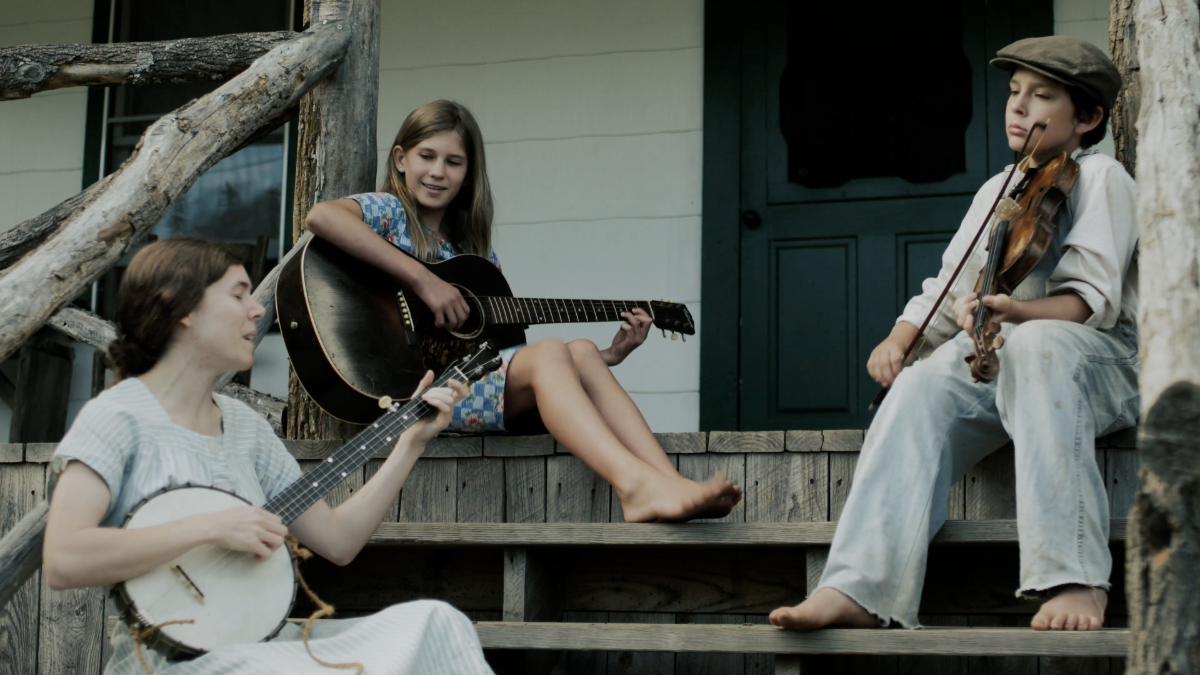
What kept me going was my constant focus on my vision of the story. I had spent a career outside of the film industry where my job was to put together teams during environmental emergencies to resolve what appeared to be impossible, sometimes life-threatening situations. Over a career’s time, I developed a leadership style that brought out the best in people and utilized their skills and talents, and collaboration. I brought this experience to direct a film and it worked. My actors had little confidence when we started out, but I think I was able to help them find qualities within themselves that they did not know were there. Together, with our combined experience, skills, and talents, we were able to accomplish what seemed like an impossible task—making a movie.
What about independent filmmaking and the business do you still struggle with?
Dale Farmer (DF): With my Appalachian upbringing, it has been drilled into me all my life to not ask for help; just find a way to do it yourself. Other than college grants, I have never in my life asked anyone for money and very few favors. Raising money to make a film was and is my worst nightmare. I joke and say that if I go to ask someone to ask for money, I will end up writing them a check before I leave. I went to college so that I could find a professional working outside so that I would not have to deal with business and paperwork and such. Not only do I dislike the business side of filmmaking; I am really bad at it. I genuinely love good people, but I do not seek superficial relationships, so I am not so good at networking parties and finding people to help me along. I usually find one or two people I like and listen to them talk about their projects. But, I’m trying…
Where do you think your strengths lie as a producer?
Dale Farmer (DF): I think whether it is directing or producing, an understanding of effective leadership experience is my best strength. People are unique and respond differently to stimuli. So, my style is to not have a set style. I try to find out what makes every individual tick and what they respond to most effectively. One actor just wants you to tell them how to move around in a scene, while another needs to confer on motivations and such. I had one actor who was just trying too hard and was coming across as obviously acting. We took a break and I invited her to take a walk with me and we exchanged ideas about her character and her relationships with other characters and such, and from that point on she nailed every scene. I started down that direction with another actor and quickly found that she did not need that at all, but something entirely different to help her with her scenes. Things work out well when you do as much listening as talking and it did not take long for every single cast and crew member to know that I cared about them and respected and valued what they brought to the project. In turn, they all gave 100% as they trusted and followed my direction. The same principles have guided me as a producer and working with editors, interns, and screening partners.
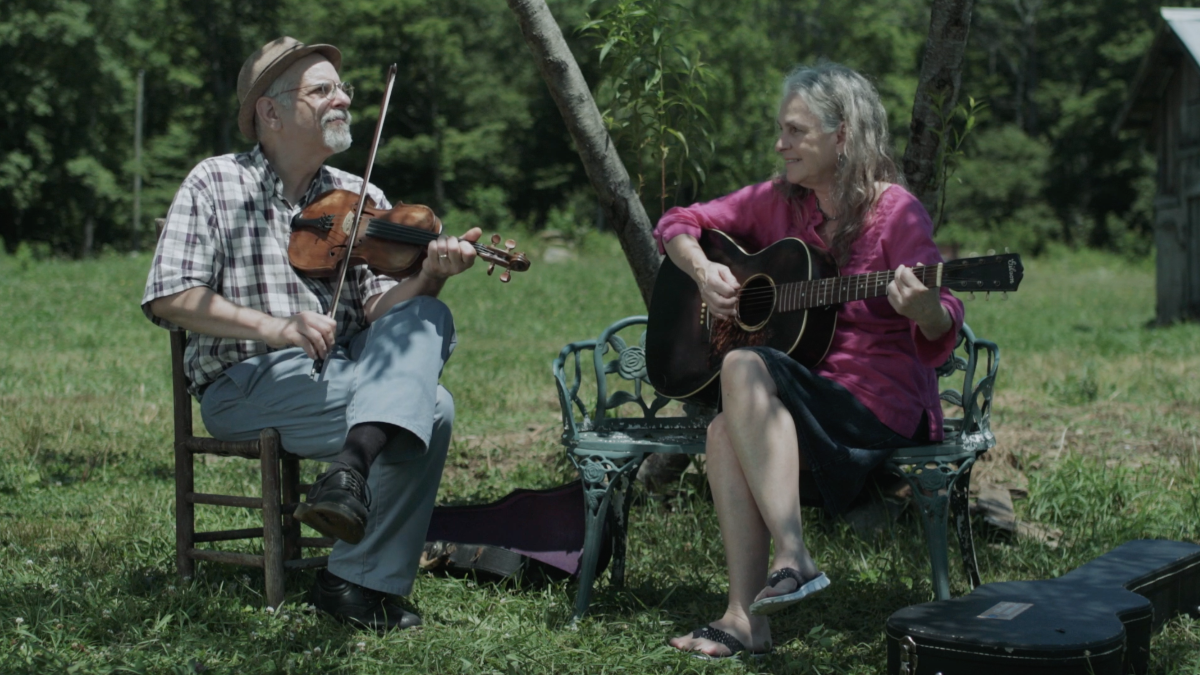
Let’s talk about finance, How did you finance the film?
Dale Farmer (DF): We had a nonprofit fiscal sponsor, From the Heart Productions. We set up crowdfunding through their association with Network for Good. We pretty much relied on social media to promote all our crowdfunding. It was amazing to receive so many generous donations from people we had never met, who believed in what we were doing. I did write letters to every foundation that supported Appalachian and music education-related projects. Not a single one of them responded. We looked for grants and had calls with a couple of corporations that had grants available for projects like ours, but since we were not doing a documentary or because of our geographic location outside of Appalachia, we did not qualify for any grants.
We had only raised $8,000 of our projected budget of $250,000. I was considering calling the whole thing off when I was contacted by a very generous donor who had seen our concept trailer. She then spoke with a few other associates who also gave very generously, which brought our total to $130,000 for production. We decided to move ahead on faith, dropped many key positions, and condensed our shooting schedule from 18 days to 14. The same donors came through again, later, with an additional $20,000 for post-production. My producer, Susan, and I made up the difference from our personal funds. We have been selling DVDs and Blu-rays online and at our screenings, Appalachian-related conferences, and music festivals where I purchase or have donated, exhibitor tables. We also use the exhibitor tables to find screening partners and collect names for our email database. Our income is finally slowly outpacing our ongoing expenses.
How much did you go over budget? How did you manage it?
Dale Farmer (DF): We did not go over budget except for not having funds for post-production, at the time the production was completed. Everyone involved with the project was paid fairly, except for Susan Pepper and me. We paid for all our locations and had an amazing caterer on set. We paid for travel and lodging for the out-of-town cast and crew. We worked really hard to draft an accurate budget sheet before we began production and made it work with the money we had available.
How important is marketing? Do you think a project can make a dent without it nowadays?
DF: I think that marketing is the one big expense that we low-budget filmmakers often do not adequately consider when starting out. Many filmmakers have the attitude of “Let’s make our film and those things will take care of themselves when the time comes.” I know there are so many people that would love to watch our film if they only knew it existed, but without a marketing strategy, nobody will know about the film.
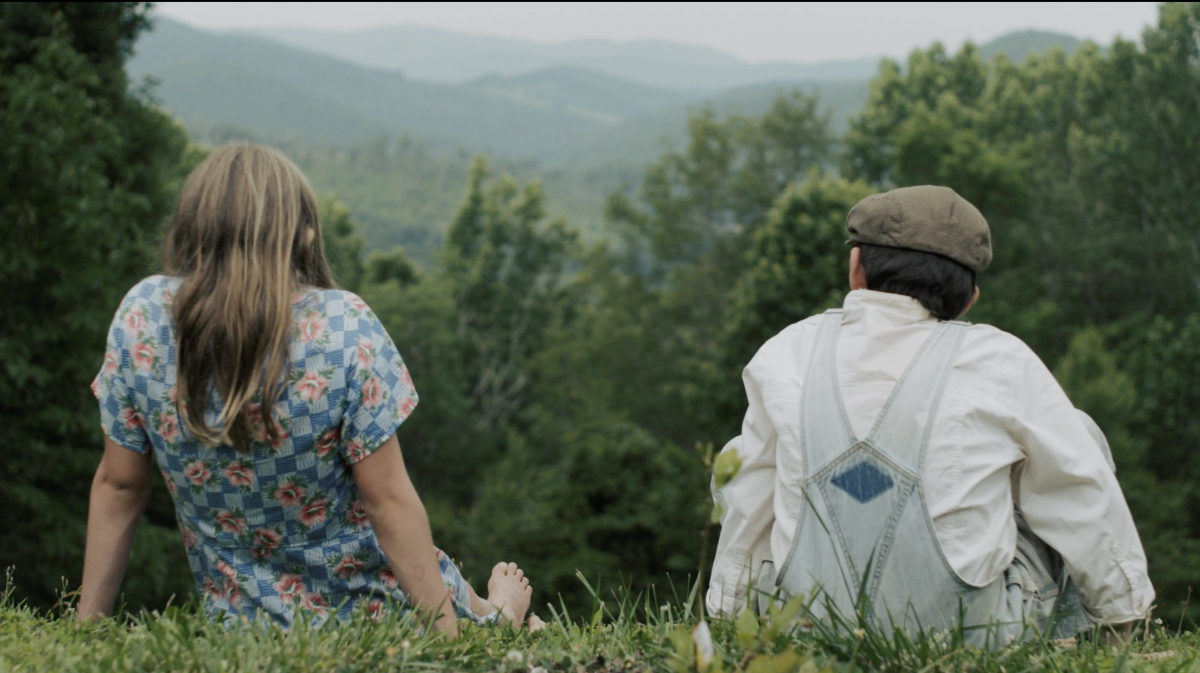
Tell us about marketing activities or efforts on this project – and how it worked or didn’t work?
DF: We have worked social media pretty hard and although we have targeted younger viewers, we found that our primary audience is aged 50-80, many of whom are not even on social media. I am sure I would have never hired a publicist before meeting Fred Anderson. Fred initially arranged a cross-promotional event for us at a music museum in East Tennessee. Later, he offered to help us promote our theatrical release in Cincinnati free of charge since he liked our film so much. Fred got us on TV news shows for interviews and performances, got us interviews in newspapers in Cincinnati and Dayton, submitted press releases to local and online entertainment publications, and coached me on things publicity-related. As a result, we sold out our first seven theater screenings in the Cincinnati-Dayton area and saw a big spike on social media likes and shares. More recently, he was instrumental in getting our film a national TV broadcast premiere on The Heartland Network and showings on Kentucky Educational Television (KET), which is a statewide network, as well as on West Virginia Public Broadcasting and CET and ThinkTV in Ohio. He also arranged for a special event at the Kentucky Music Hall of Fame & Museum. Marketing is expensive and I’m not sure what the end return might for us, but at least people are hearing about our film and it’s finally getting out there.
What do you hope audiences will get from the presentation of your film?
DF: During the Great Depression, many tens of thousands of families had to leave Appalachia to find work in the Midwest factory centers. They were migrant families facing the same harsh reception so many migrants face today. They were made fun of, mocked in the media, and blamed for so many of society’s troubles of the day. But they brought with them resilience and tenacity, a strong work ethic, and some amazing music that evolved into bluegrass, country, and rock & roll. Like every culture, there are dark sides. Unfortunately, the media and Hollywood have a long history of focusing on the negative stereotypes of the Appalachian people and culture. There are so many interesting stories to be told of the amazing contributions of the Appalachians that have helped shape our nation in a positive way, but the stereotypes and so many residual challenges for the Appalachian migrants continue down through those families to the current day. I have had so many people at screenings, through emails and messages on social media contact me and thank me for making this film. They thank me because The Mountain Minor is also their family story. They thank me because it makes them feel like they matter. That has made the past five all-consuming years worth every minute.
What else have you got in the works?
DF: I have so many ideas bouncing around in my head. I have a completed screenplay ready for development, and three in the works. The completed story is another period drama with a strong female lead. The film brings to light the many challenges facing young female musicians in 1930s Appalachia and highlights African American influences and contributions to old-time music, a genre that would eventually evolve to all American music today. The story involves a lot of issues around gender inequality and racism. I would love to find an established female, ideally an African American female producer to work with on the project.
Tell us what you think of the interview with Dale Farmer. What do you think of it? What ideas did you get? Do you have any suggestions? Or did it help you? Let’s have your comments below and/or on Facebook or Instagram! Or join me on Twitter.
Follow Dale Farmer on Social Media
Website
IMDb
Facebook
LinkedIn
Wikipedia
Vimeo
Richard Green Documentary, ‘I Know Catherine, The Log Lady’: Premiere in NYC, LA May 9th
Lynchian Doc I Know Catherine, The Log Lady Makes Hollywood Premiere 4/17, Rollout to Follow
In Camera by Naqqash Khlalid Launch on VOD April 29
Naqqash Khlalid’s Directs Nabhan Rizwan. In Camera stars an EE BAFTA Rising Star Award Nominee.
2025 Philip K. Dick Sci-Fi Film Festival Award Winners Announced
Vanessa Ly’s Memories of the Future Awarded Best PKD Feature
Dreaming of You by Jack McCafferty Debuts VOD & DVD for April Release
Freestyle Acquires “Dreaming of You” for April 15th Release
Hello Stranger by Paul Raschid set for London Games Festival & BIFFF
The film Is set for an April 10th Premiere at The Genesis Cinema in London (LGF) and BIFFF
Daydreamers Official Trailer by Timothy Linh Bui: Released by Dark Star Pictures
Daydreamers Vietnamese Vampire Thriller – May 2nd release









